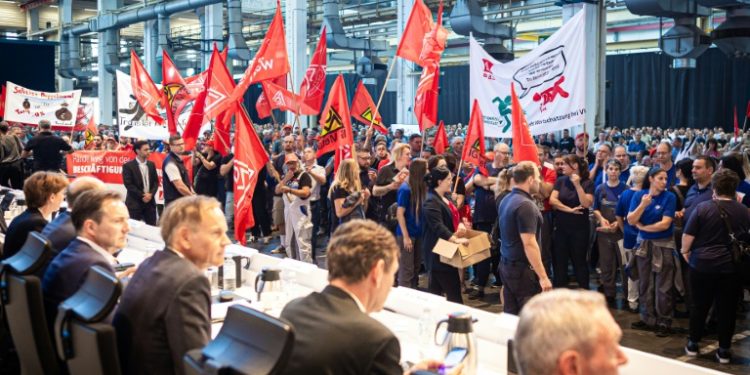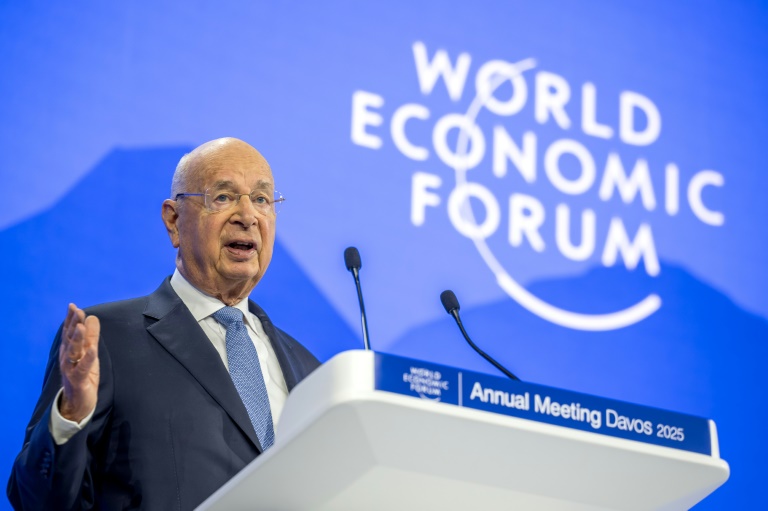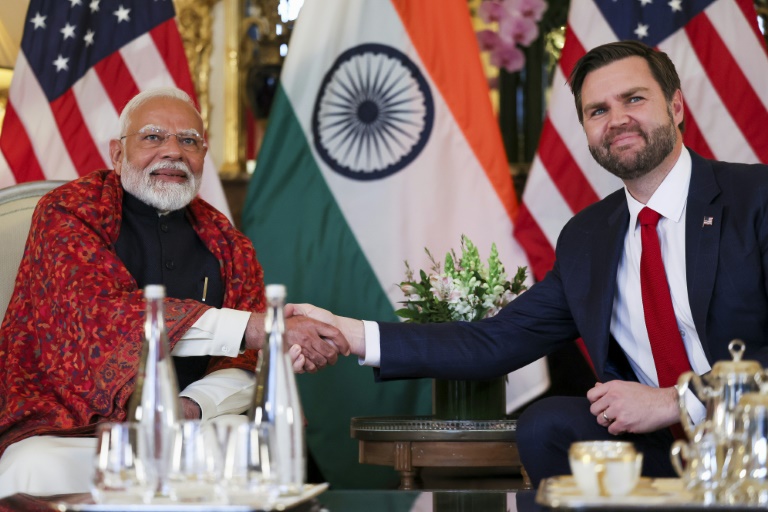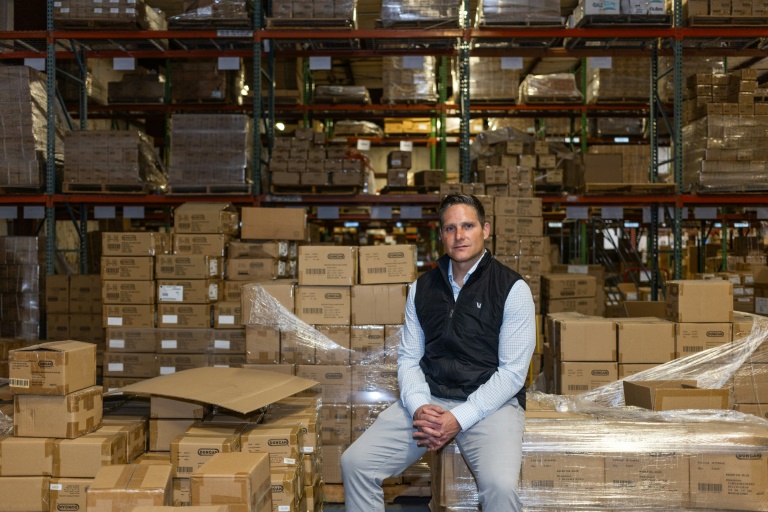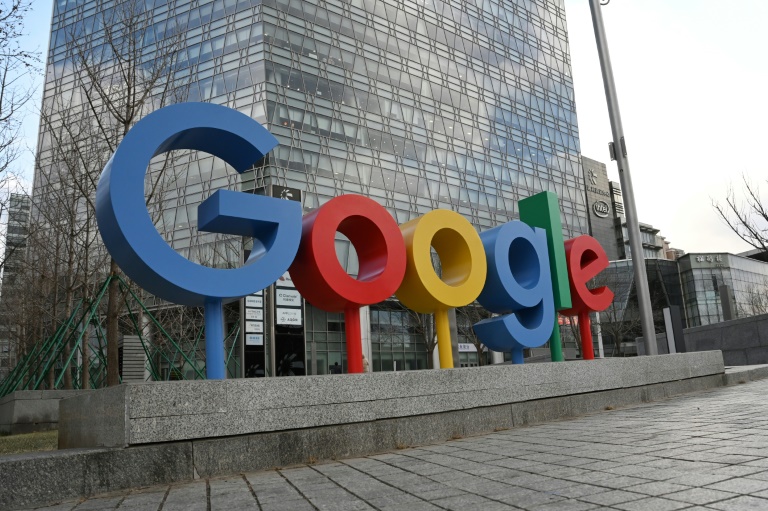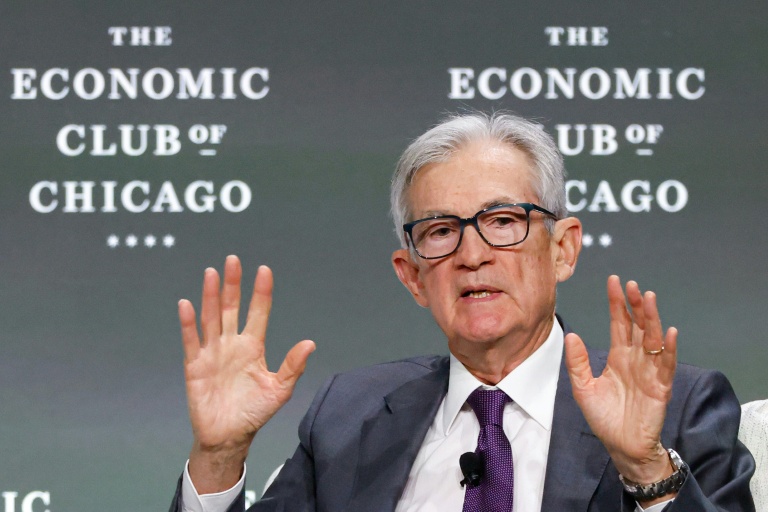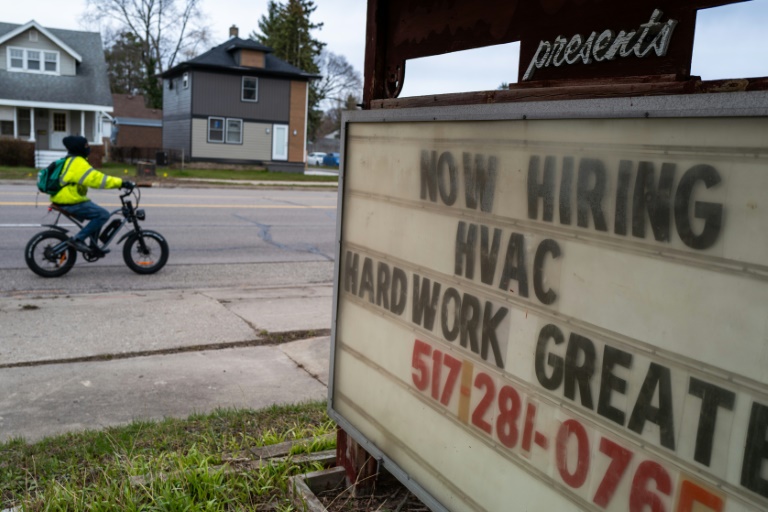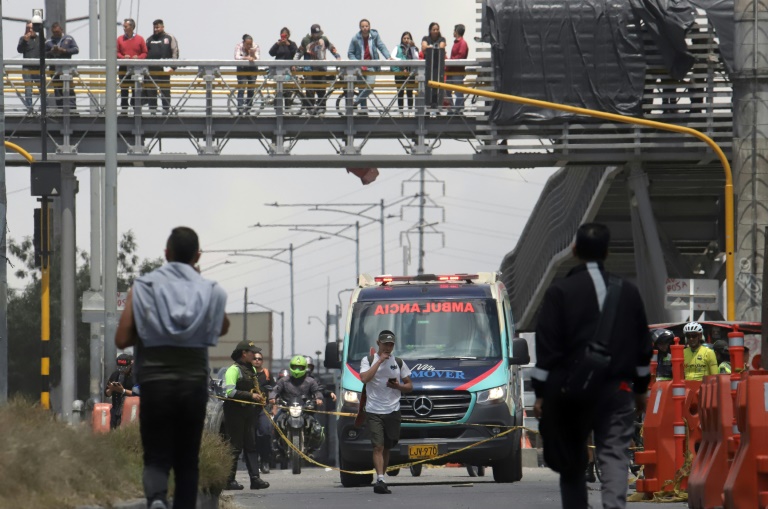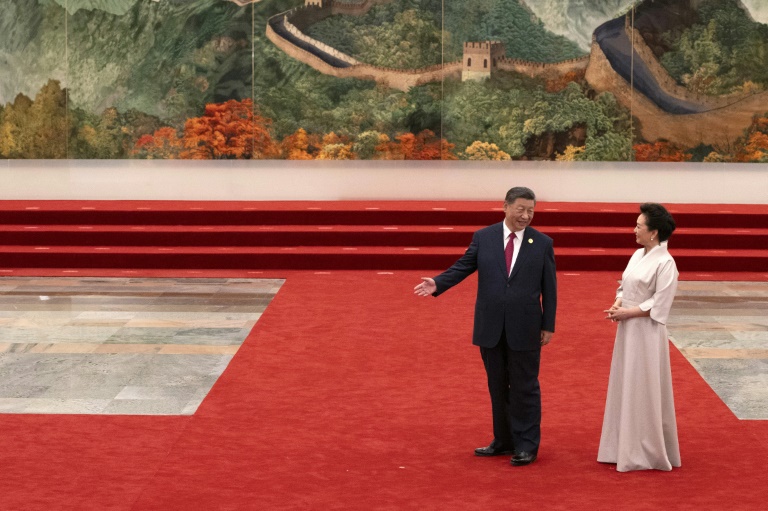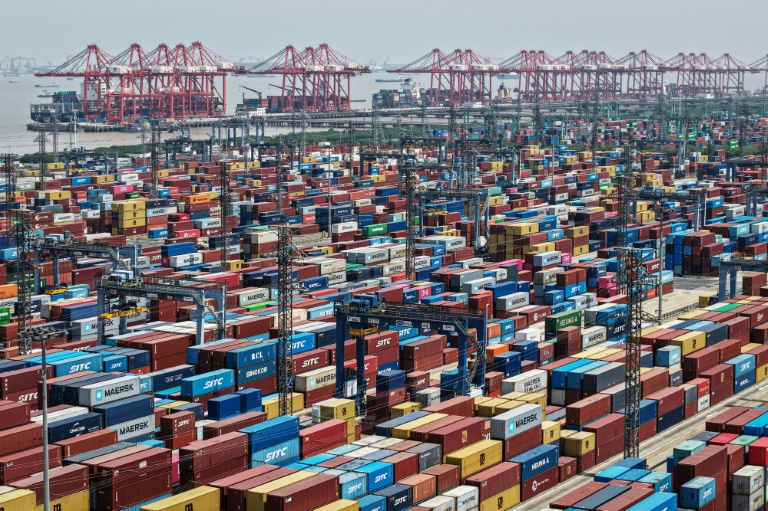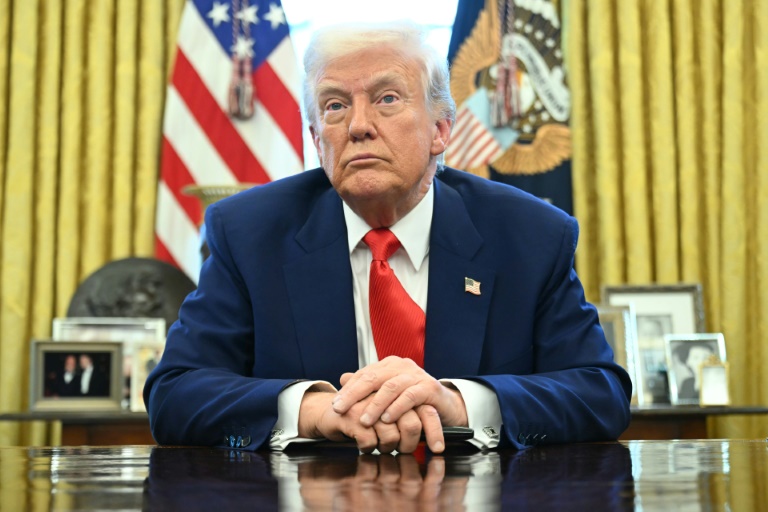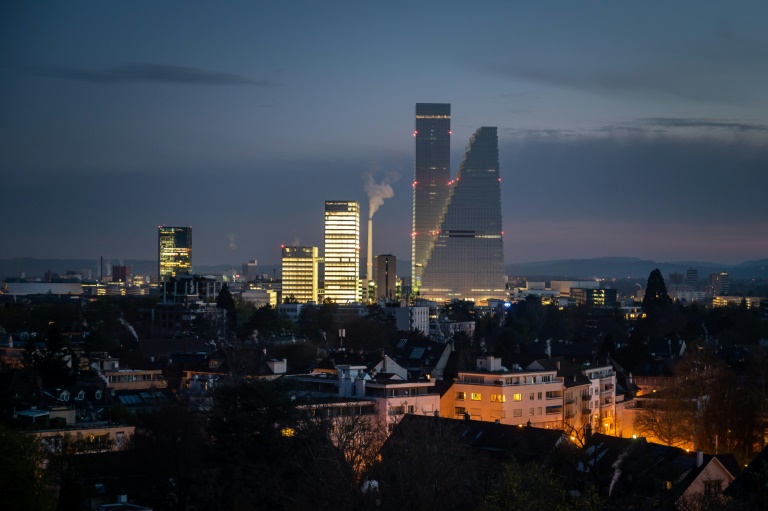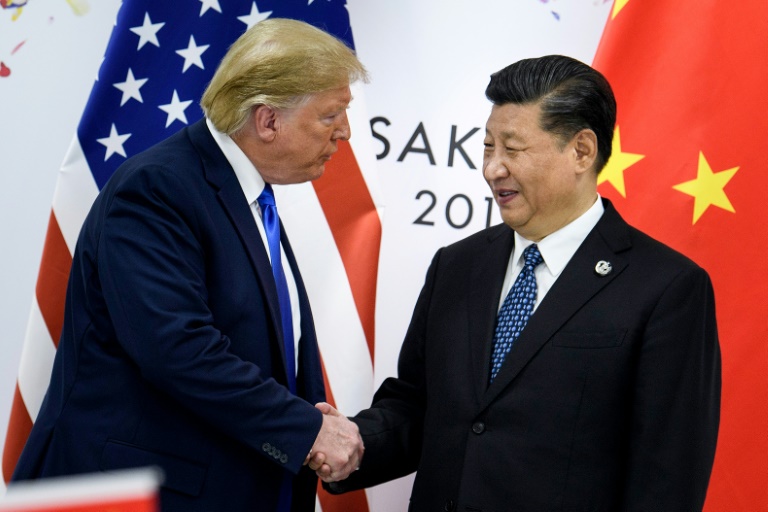Wolfsburg (Germany) (AFP) – Volkswagen executives defended plans to consider the unprecedented closure of factories in Germany during a heated meeting Wednesday with thousands of staff, saying falling sales had hit it hard. Several thousand employees fearful about their future protested at VW’s historic headquarters ahead of the gathering, waving banners and blowing whistles.
Arno Antlitz, Volkswagen’s chief financial officer, said car sales in Europe were still far below pre-pandemic levels. For Europe’s top carmaker, this meant a loss of around 500,000 vehicle sales a year, “the equivalent of around two plants,” he said. “The market is simply no longer there,” he told the meeting, attended by some 25,000 staff, with some following on screens outside. “We need to increase productivity and reduce costs. We still have a year, maybe two years, to turn things around,” he added, without giving further details of the savings plan.
The comments from the finance chief in Wolfsburg came two days after the shock announcement was first made to staff in an internal memo. Volkswagen last year announced plans for a 10-billion-euro ($11-billion) savings programme and flagged cuts to its workforce over the coming years to improve profitability. But the group said these further measures were now required after recent results disappointed. However, the move to slash costs at one of Germany’s best-known companies has alarmed government officials and set Volkswagen on a collision course with the unions and its powerful works council.
– ‘Fierce resistance’ – Daniela Cavallo, works council chairwoman, warned VW’s management would face “fierce resistance from the workforce”, promising there would be no site closures on her watch. The group “is not in difficulty because of its German sites and the costs of German staff,” but because “the management board is not doing its job,” she told the meeting.
“We’re being dismantled in secret,” VW worker Axel Wenzlaff, 59, told AFP on his way into the factory in Wolfsburg, expressing concern for colleagues who might be affected. “They should start with those at the top, throw out the people who are responsible,” Wenzlaff said. The idea of possible plant closures in Germany and active cuts was “something completely new,” said Michael Gadow, 66, a former toolmaker at the group, where a job is often thought to be for life. “It is certainly concerning for many employees who otherwise feel they work in a very safe factory,” Gadow said of possible reductions to the headcount at the group.
In Belgium, workers at the group’s factory in Brussels went on strike Wednesday over threats to the future of the plant. But a site closure in Germany, where Volkswagen employs some 300,000 people across its different brands, would be a first in the 87-year history of the group.
– ‘A car country’ – The trouble at Volkswagen, which has struggled with the transition to electric vehicles and competition from overseas rivals, is a heavy blow to Chancellor Olaf Scholz’s government at a time the domestic economy was already struggling. “Germany must remain a car country,” Labour Minister Hubertus Heil said Wednesday following a meeting of the cabinet where ministers agreed new support for electric cars. He called on VW’s management to “ensure that a reasonable and socially acceptable solution is found and that VW remains strong.”
Scholz himself was keeping “detailed” tabs on the situation, his spokesman said at a press conference, adding that the group was responsible for finding a solution together with workers. “Volkswagen blood still flows in my veins,” said retired auto worker Eckard Siewertsen, 73, one of three generations in his family to have worked for Volkswagen. Despite a number of crises at Volkswagen over the years, “we have always managed to get back on our feet,” Siewertsen told AFP in Wolfsburg. “I’m working under the assumption that it will work this time, too.”
© 2024 AFP

